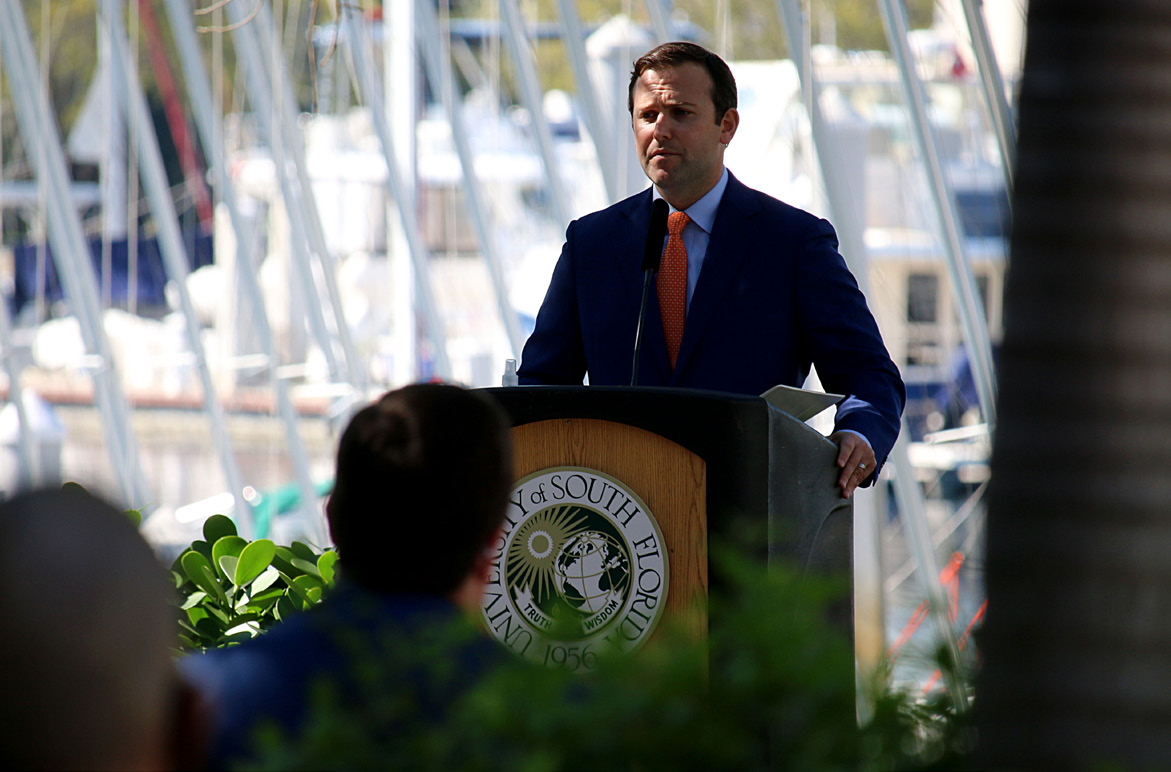Pictured Above: House Speaker Chris Sprowls, R-Palm Harbor, outlined the Legislature’s plans to address rising sea levels at a news conference at USF St. Petersburg in February.
Sophie Ojdanic | The Crow’s Nest
By Crow’s Nest Staff
Legislation that will put the USF College of Marine Science at the forefront of an ambitious plan to address rising sea levels and flooding in Florida has been signed into law by Gov. Ron DeSantis.
Two bills signed by the governor on Wednesday mandate creation of a state sea-level rise resilience plan and commit $100 million a year to address flooding issues.
They also create a hub for flood research and innovation at the College of Marine Science on the St. Petersburg campus.
For years, politicians in Florida’s Republican-dominated state capital have downplayed climate change and its consequences as a significant threat in the state. So the new laws touted by DeSantis and House Speaker Chris Sprowls, R-Palm Harbor, mark something of a turnabout for Tallahassee.
When Sprowls unveiled the legislation in February at a news conference along the St. Petersburg campus’ scenic waterfront, he was joined by Alec Bogdanoff, an oceanographer and Florida leader for the American Flood Coalition, an organization that works with local governments and private business to address flooding issues.
“We have to stop the existing flooding, and then we need to make sure that flooding does not continue to worsen,” Bogdanoff said then. “This legislation focuses on both.
“It really pulls together the best research being done by our universities and research institutions across the state and empowers regional efforts with this information to respond more effectively to flooding and sea-level rise.”
Although environmentalists have applauded the legislation, some contend it does not go far enough.
“It’s progress,” Susan Glickman of the Southern Alliance for Clean Energy wrote last month, “but my enthusiasm is tempered because this legislation does nothing to get at the root of the problem, and more emissions means even greater sea level rise.
“We must also dramatically reduce harmful greenhouse gas pollution that’s driving the flooding, sea-level rise, heavy rains, storm surges and intensified hurricanes,” she said.
Information from the Tampa Bay Times, the Florida Politics website and the Southern Alliance for Clean Energy was used in this report.



